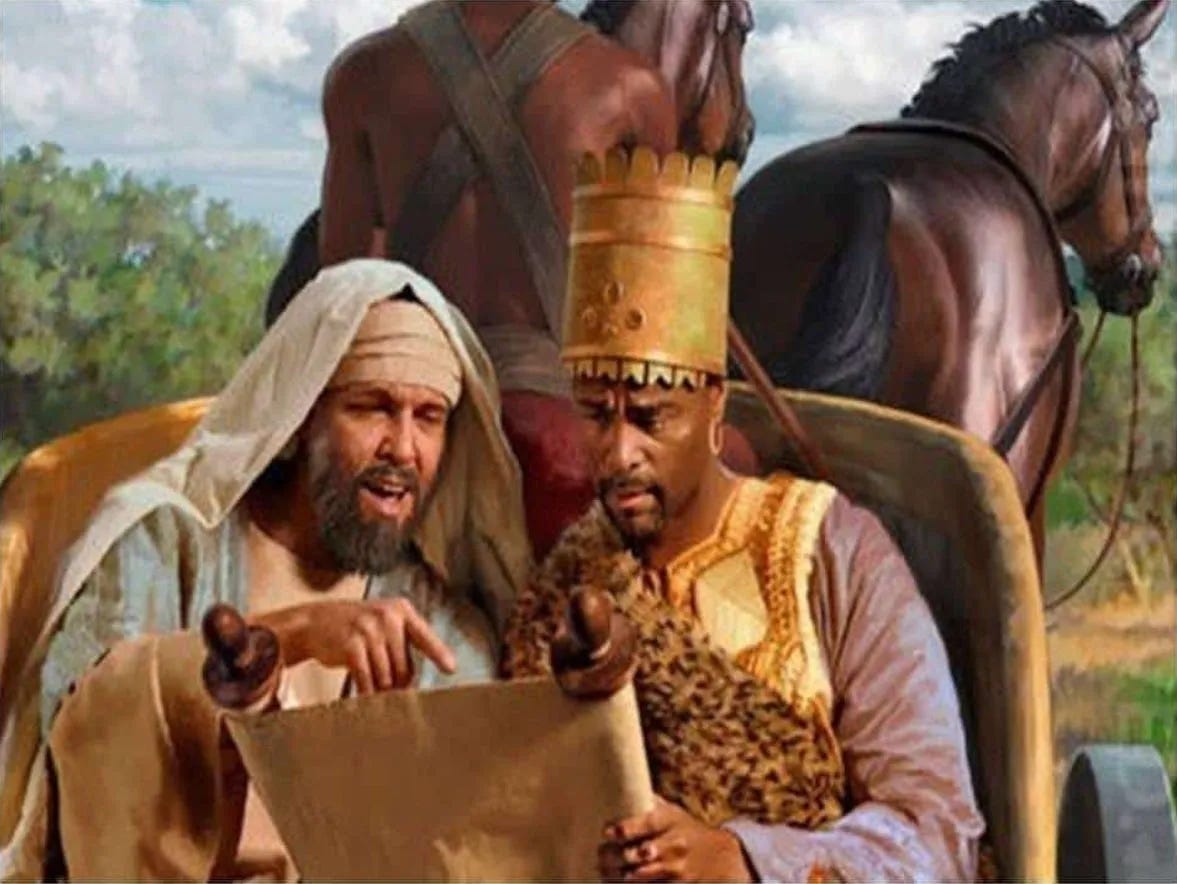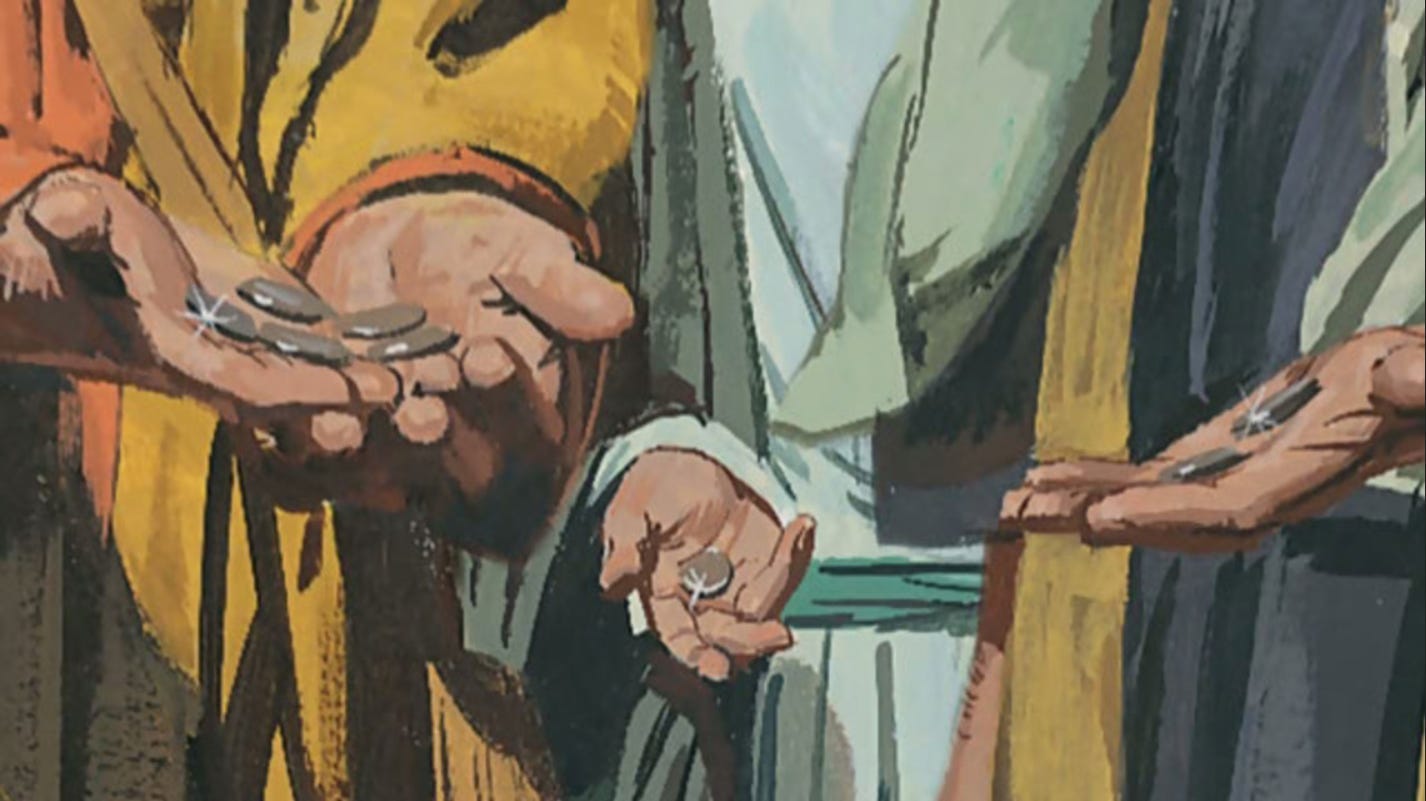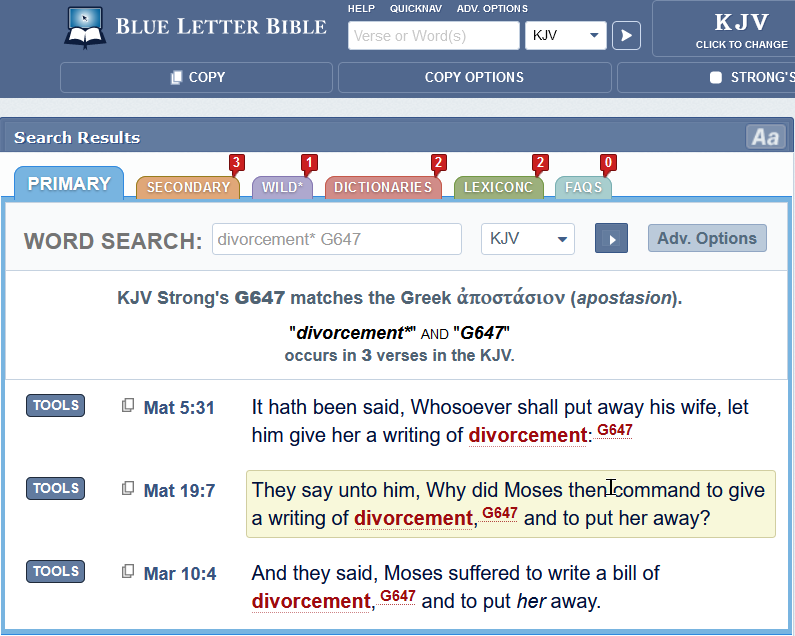How do you win souls? The term “soul winning” is one of the most heard term in evangelical churches. What did the bible tell us about soul-winning? Solomon tells us in this verse:
Proverbs 11:30 "The fruit of the righteous is a tree of life; and he that winneth souls is wise."
This verse tells us that the “fruit of the righteous” is a tree of life. Think about a fruit tree in nature. Where did the fruits come from? Well, fruits came from a fruit-bearing tree, which in turn came from a seed. Jesus tells us in the Parable of the Sower:
Luke 8:11 "Now the parable is this: The seed is the word of God."
The “seed” is the word of God. It is from the seed of the word of God that a tree of life was planted in the good ground heart of a born again believer. Who sown the seed? Proverbs 11:30 tells us that “he that winneth souls is wise.” That was the seed that was sown by a soul-winner. Jesus called Simon Peter and Andrew his brother “fishers of men” in this verse:
Matthew 4:19 "And he saith unto them, Follow me, and I will make you fishers of men."
That means that instead of catching fish, for Simon Peter and Andrew his brother were fishermen by profession, they would now be fishers of men. Of course, the term “fishers of men” is a figurative term: they would be soul-winners for the kingdom of heaven on earth; they would be sowing the seed of the word of God in the hearts of men, with the hope of catching a net full of fishes, just like what we read in the Parable of the Net:
Matthew 13:47-48 "¶ Again, the kingdom of heaven is like unto a net, that was cast into the sea, and gathered of every kind: 48 Which, when it was full, they drew to shore, and sat down, and gathered the good into vessels, but cast the bad away."
Jesus tells us that the kingdom of heaven is like unto a fisher’s net that was cast into the sea, and gathered of every kind. There will be some fishes that are good, and some that are bad. The good ones will be gathered into vessels, but the bad ones will be cast away. This is where the Parable of the Net connects with the Parable of the Sower. When the sower sowed the word, some fell on the wayside, some on the stony ground, some on the thorny ground, and others on the good ground. That is to say, not every heart will love the word of God equally and receive it as it is. The Parable of the Net likens the kingdom of God to a net having a mix of good and bad fishes. How people treat the word of God will determine whether they are good fishes to be gathered into the vessels, or bad fishes to be cast away.
Luke 8:15 "But that on the good ground are they, which in an honest and good heart, having heard the word, keep it, and bring forth fruit with patience."
Of all the types of ground, only an “honest and good heart” (Luke 8:15) will keep the word of God and bring forth fruit with patience. These are the good fishes that will go into the vessels. The wayside heart, the stony ground heart and the thorny ground heart are the bad fishes in the net which are gathered, only to be cast away in the end. In fact, the same precept is also taught to us in the Parable of the Tares and the Wheat:
Matthew 13:30 "Let both grow together until the harvest: and in the time of harvest I will say to the reapers, Gather ye together first the tares, and bind them in bundles to burn them: but gather the wheat into my barn."
While I believe in eternal salvation, only an “honest and good heart” (Luke 8:15) that keeps the word of God and bring forth fruit with patience, will inherit everlasting life. There will be a gathering in the time of harvest, just like how the fishes are gathered in a net. The wheat too, will be gathered into the barn as good fishes that are gathered into the vessels. The tares, on the other hand, will be gathered in bundles to be burned as the bad fishes that are gathered to be cast away. Those would be the Christians who are Christians only in name, but not in substance.
Matthew 13:23 "But he that received seed into the good ground is he that heareth the word, and understandeth it; which also beareth fruit, and bringeth forth, some an hundredfold, some sixty, some thirty."
Notice the words “he that heareth the word, and understandeth it?” This verse is a reference to the honest and good heart of Luke 8:15, which having heard the word, will keep it, and bring forth fruit with patience. In fact, a comparison between this verse and Luke 8:15 reveals the root meaning of what “understanding” is about, particularly in the light of this passage of scripture:
Jeremiah 25:10-11 "Moreover I will take from them the voice of mirth, and the voice of gladness, the voice of the bridegroom, and the voice of the bride, the sound of the millstones, and the light of the candle. 11 And this whole land shall be a desolation, and an astonishment; and these nations shall serve the king of Babylon seventy years."
When God’s people are in rebellion against him, there are six things that God said he would take away: [1] voice of the mirth; [2] voice of gladness; [3] voice of the bridegroom; [4] voice of the bride; [5] sound of the millstones; and [6] light of the candle. One of the things that God would take away is the “sound of the millstones.” A millstone is an instrument that is used to process grains and wheat for food. Jesus tells us that he is the bread of life in John 6:48, and bread is food that has been processed from the grains and wheat. Without the millstone, one cannot make bread. Connect this to:
Amos 8:11 "¶ Behold, the days come, saith the Lord GOD, that I will send a famine in the land, not a famine of bread, nor a thirst for water, but of hearing the words of the LORD:"
God says in this verse that he will send a famine in the land, not a famine of bread, nor a thirst for water, but of the hearing of the word of God. If the millstone is taken away, the people will not be able to process the grains and the wheat to make bread. Likewise, in taking away the sound of the millstones, God will take away their means to process his laws and commandments, so that they will hear and not understand, just like what Isaiah tells us in this passage of scripture:
Isaiah 6:9-10 "¶ And he said, Go, and tell this people, Hear ye indeed, but understand not; and see ye indeed, but perceive not. 10 Make the heart of this people fat, and make their ears heavy, and shut their eyes; lest they see with their eyes, and hear with their ears, and understand with their heart, and convert, and be healed."
That is God’s judgment against churches that teach for doctrines the commandments of men, to bring a famine of the hearing the words of the LORD, so that they will starve and thirst for the spiritual food and drink needed for their souls. Notice the words “Hear ye indeed, but understand not?” They will hear the words of the LORD, but will not understand them with their heart. They will hear his laws and commandments, but will not be able to process them.
Isaiah 28:9 "¶ Whom shall he teach knowledge? and whom shall he make to understand doctrine? them that are weaned from the milk, and drawn from the breasts."
Doctrines are teachings derived from the word of God. They are God’s laws and commandments processed and understood by the hearer, and are given to us precept upon precept, precept upon precept, line upon line, line upon line, here a little, and there a little according to Isaiah 28:10. Isaiah 6:10 tells us that it is with our heart that we understand: it is with our heart that we process the laws and commandments of God, so that they become food for our souls, the spiritual bread and drink that produce life. That is why Solomon used the term “tree of life” in Proverbs 11:30. A soul-winner is a tree of life that help others understand the word of God, so that they might believe. In fact, we have an example of that in Philip’s encounter with a man of Ethiopia, an eunuch of great authority under Candace queen of the Ethiopians, who had an issue understanding the book of Isaiah.
Acts 8:30-31 "And Philip ran thither to him, and heard him read the prophet Esaias, and said, Understandest thou what thou readest? 31 And he said, How can I, except some man should guide me? And he desired Philip that he would come up and sit with him."
Philip asked the eunuch “understandest thou what thou readest?” That was Philip asking the eunuch if he could process the words of the LORD in Isaiah, to which the eunuch replied “how can I, except some man should guide me?” That was when Philip the soul-winner opened his mouth, and began at the same scripture, expounded unto him Jesus from the word of God: precept upon precept, precept upon precept, line upon line, line upon line, here a little, and there a little, as we read in Acts 8:35. So after Philip preached the gospel of Jesus Christ to him, he understood from the book of Isaiah, and believed in the word of God, that Jesus is the Son of God, and proceeded to be baptized.
Acts 8:37 "And Philip said, If thou believest with all thine heart, thou mayest. And he answered and said, I believe that Jesus Christ is the Son of God."
That was a fine example from the bible of how a born again believer ought to be doing soul-winning. Born again believers are also called “salt of the earth” in this verse:
Matthew 5:13 "¶ Ye are the salt of the earth: but if the salt have lost his savour, wherewith shall it be salted? it is thenceforth good for nothing, but to be cast out, and to be trodden under foot of men."
According to this verse, salt is used to savour food. It is used make the food taste better. That is very important when we teach the word of God to others. If a soul-winner cannot make the word of God taste good to the soul he is trying to win, if he cannot break down the word of God and make it palatable for the soul, he is a “good for nothing” Christian according to Jesus in this verse, because he will not be able win any soul for the kingdom of God. The end for a good for nothing Christian is that he will be cast out from the body of Christ, eventually. Jesus tells us:
Mark 16:15-16 "And he said unto them, Go ye into all the world, and preach the gospel to every creature. 16 He that believeth and is baptized shall be saved; but he that believeth not shall be damned."
Every Christian has a gospel that was preached unto him from someone. This is the gospel that has traveled from thousands of years in history, and has reached billions upon billions of people from all over the world, throughout history, only to be heard by someone that God has called in the present time, through another Christian or preacher. It was then, that the preacher or Christian must present the word of God to the hearer. The goal is to win souls for the kingdom of God on earth, and so he must process the word of God to make it palatable for the hearer. He will use the talents that God has given him to achieve the goal. We also have a picture of that in the Parable of the Talent in Matthew 25:14-30.
Matthew 25:14-15 "¶ For the kingdom of heaven is as a man travelling into a far country, who called his own servants, and delivered unto them his goods. 15 And unto one he gave five talents, to another two, and to another one; to every man according to his several ability; and straightway took his journey."
There were three servants, and each has received their talents from their Lord, who gave them according to their several abilities. After a long time, when their Lord returns from his journey to a far country, it was then that each of these servants went and present themselves before their Lord. To the two servants who traded their talents and gain additional talents, the Lord said unto them: “Well done, thou good and faithful servant: thou hast been faithful over a few things, I will make thee ruler over many things: enter thou into the joy of thy lord.” (Matthew 25:21; 25:23) However, to the one servant who hid his talent in the earth, his Lord called him a "wicked and slothful servant,” (Matthew 25:26) an “unprofitable servant,” (Matthew 25:30) and commanded that he should be cast into outer darkness where there shall be weeping and gnashing of teeth. We have a picture of the heart of that wicked and slothful servant in:
Proverbs 24:30-31 "I went by the field of the slothful, and by the vineyard of the man void of understanding; 31 And, lo, it was all grown over with thorns, and nettles had covered the face thereof, and the stone wall thereof was broken down."
A slothful man is also one that is void of understanding. That means that he does not have a heart that is capable of processing the word of God. Notice that the ground of his heart was all grown over with thorns and nettles. That is the thorny ground heart in the Parable of the Sower that we read in this verse:
Luke 8:14 "And that which fell among thorns are they, which, when they have heard, go forth, and are choked with cares and riches and pleasures of this life, and bring no fruit to perfection."
The seed of the word of God fell among the thorns, on a thorny ground that was choked with cares and riches and pleasures of this life, so that this person brings no fruit to perfection. Proverbs 24:31 also tells us that the stone wall thereof was broken down. The stone wall was broken down means an enemy has entered in and robbed him of all his true riches. He may start out as a Christian, but the type of heart he has (how he treats the word of God) means that he will “bring no fruit to perfection.” The writer of Hebrews tells us in this passage of scripture:
Hebrews 6:4-6 "For it is impossible for those who were once enlightened, and have tasted of the heavenly gift, and were made partakers of the Holy Ghost, 5 And have tasted the good word of God, and the powers of the world to come, 6 If they shall fall away, to renew them again unto repentance; seeing they crucify to themselves the Son of God afresh, and put him to an open shame."
Those would be the Christians who were once enlightened, and have tasted of the heavenly gift, and were made partakers of the Holy Ghost, and have tasted the good word of God, and the powers of the world to come. The term “fall away” connects to the Parable of the Sower in:
Luke 8:13 "They on the rock are they, which, when they hear, receive the word with joy; and these have no root, which for a while believe, and in time of temptation fall away."
Those would be the stony heart Christians who once received the word with joy, and for a while believe. That is, until the time of temptation comes, and they “fall away.” Even though the seed of the word of God did bring forth a shoot, however, because of their stony ground hearts which have no deepness of the earth, so that when the sun was up, the shoot was scorched, and they withered away. How they treat the word of God will determine their walk with God. Hebrews 6:4-6 tells us that it is impossible to renew these Christians again unto repentance, seeing they crucify to themselves the Son of God afresh, and put him to an open shame. The writer of Hebrews continues:
Hebrews 6:8 "But that which beareth thorns and briers is rejected, and is nigh unto cursing; whose end is to be burned."
Those would be the thorny ground heart Christians whose love of the word of God has been replaced by the cares of this world and riches and pleasures of this life, so that they bring no fruit to perfection. Hebrews 6:8 tells us the end of those Christians which beareth thorns and briers (“beareth not fruit” according to John 15:2), is to be rejected by God and be burned in hell, where there shall be weeping and gnashing of teeth.
2 Peter 2:20 "For if after they have escaped the pollutions of the world through the knowledge of the Lord and Saviour Jesus Christ, they are again entangled therein, and overcome, the latter end is worse with them than the beginning."
The latter end for those Christians will be worse with them than the beginning. Many will be like king Saul who after they have escaped the pollutions of the world through the knowledge of Jesus Christ, they are again entangled therein, and overcome. King Saul turned to witchcraft as an alternative to the word of God in his latter end. Likewise, the latter end of those Christians will be worse with them than the beginning. We have a reference of the term “fall away” in:
2 Thessalonians 2:3 "Let no man deceive you by any means: for that day shall not come, except there come a falling away first, and that man of sin be revealed, the son of perdition;"
The term “fall away” connects to “falling away” (Greek: apostasia) in 2 Thessalonians 2:3, and that was Paul making a reference back to the Parable of the Sower in Luke 8:13. It is to be noted that the root meaning of “apostasia” is found in the word “apostasion,” which is translated as “divorcement” in Matthew 5:31, Matthew 19:7 and Mark 10:4. Therefore, the “falling away” according to Paul in 2 Thessalonians 2:3 will be signified by the idea of “divorcement.” It will be Christ giving a writing of divorcement to put away those Christians who would receive a mark in their right hand, or in their foreheads, so that they should not be killed for the testimony they once held as believers, that they may continue to buy or sell like everyone else who, likewise, have received the mark of the beast.
Revelation 3:5 "He that overcometh, the same shall be clothed in white raiment; and I will not blot out his name out of the book of life, but I will confess his name before my Father, and before his angels."
That would be Jesus Christ blotting out the names of those Christians who will receive the mark of the beast out of the book of life, so that they shall have their part in the second death, to be burned in the lake of fire for ever and ever.
Numbers 14:32 "But as for you, your carcases, they shall fall in this wilderness."
The falling away will happen as a result of the mark of the beast being implemented, and it will be a very spectacular event to watch out for. All of a sudden, billions of people all over the world will be turned into living dead which cannot be saved. The COVID19 scamdemic is a taste of that which is to come. By taking the mark of the beast, the physical bodies of those Christians will become temples made with hands that God will not dwell in (Acts 7:48; 17:24). They have all “fallen,” so as to say, and their carcasses have become a temple for that man of sin, the son of perdition.
2 Thessalonians 2:3-4 "Let no man deceive you by any means: for that day shall not come, except there come a falling away first, and that man of sin be revealed, the son of perdition; 4 Who opposeth and exalteth himself above all that is called God, or that is worshipped; so that he as God sitteth in the temple of God, shewing himself that he is God."
The Devil wants to sit in the temple of God shewing himself that he is God. But first, he has to hijack it, and that would be via the mark of the beast (transhumanism). The falling away is not just “apostasia” in the Greek language. Of course, it would involve literal apostasy from the faith, but the greatest betrayal of all is the surrendering of the temple of God to the Devil. That’s why Judas Iscariot was also called the “son of perdition,” as in:
John 17:12 "While I was with them in the world, I kept them in thy name: those that thou gavest me I have kept, and none of them is lost, but the son of perdition; that the scripture might be fulfilled."
There are only two places in the 1611 King James Bible that this term “son of perdition” is found. One is a reference to that man of sin, the son of perdition in 2 Thessalonians 2:3; and the other is a reference to Judas Iscariot, who betrayed Jesus for thirty pieces of silver out of the love of money. Likewise, there will be many Christians who, out of the love of money, will be willing to surrender the temple of their body to the Devil, and in so doing, they shall “fall away” during the time of temptation, so that the Devil as God shall sit in the temple of their bodies, shewing himself that he is God.




















Share this post